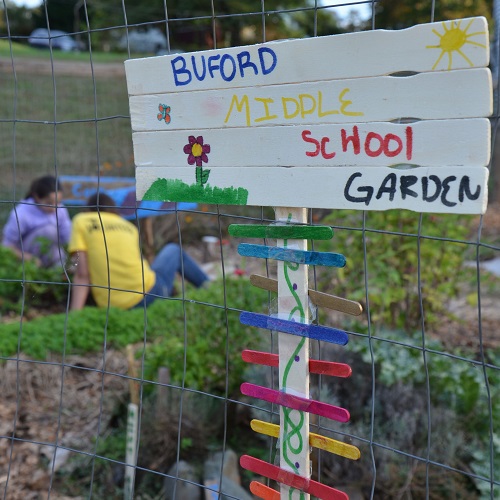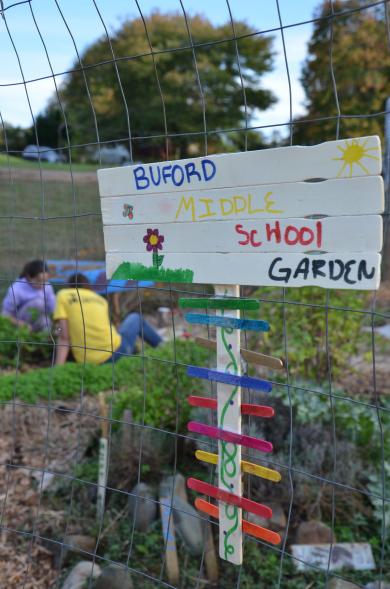KID REPORTERS’ NOTEBOOK
Schoolyard Gardens

 Why did Linda Winecoff start City Schoolyard Garden, a thriving organization in Charlottesville, Virginia? She heard about chef Alice Waters' Edible Schoolyard Project in Berkeley, California, and decided that her city needed to do something similar. Winecoff’s vision has led to seven schoolyard gardens in Charlottesville and something that involves the whole community.
Why did Linda Winecoff start City Schoolyard Garden, a thriving organization in Charlottesville, Virginia? She heard about chef Alice Waters' Edible Schoolyard Project in Berkeley, California, and decided that her city needed to do something similar. Winecoff’s vision has led to seven schoolyard gardens in Charlottesville and something that involves the whole community.
In the various gardens, students do several different tasks. When I spoke with Cy Keesecker, a kindergartener at Venable Elementary School, he said, “Part of our class had to weed, and part had to water, and I was on the weed side. I enjoyed the weeding and sitting in the dirt. [Then] we had to dig holes for plants. I love digging holes.”
LEARNING OUTDOORS
Students are learning about more than plants in their schoolyard gardens, which are serving as auxiliary classrooms.
"We love to escape the confines of the classroom and be outside," Gail Heard, an ESL (English as a Second Language) teacher at Buford Middle School, wrote in an email to me. The garden “offers a treasure trove of new vocabulary for students to learn, in an infinitely more interesting way than simply reading a book or studying a vocabulary list!”
Charlottesville's schoolyard gardens also bind the community together and give people something to get excited about. “I’ve seen two classes get so excited they almost started screaming,” Cy said.
The gardens have completely changed the looks of the schools. When asked about the Venable garden, Nancy Hopkins, a former Venable parent and current Buford parent, said, "It used to be a parking lot and a walkway, but now it’s a destination.”
"AN AMAZING NEW LEARNING ENVIRONMENT"
The schoolyard gardens instill in kids a love of good, nutritious food and an awareness of what it takes to provide it.
“It made me appreciate the food that people grow and sell because now I know how much hard work goes into growing the food,” said Frances Newman, an eighth grader at Buford.
It taught Lena Keesecker, also a Buford eighth grader, how she could be "more independent" in her food choices. She now prefers to grow her own food rather than having "to go to the grocery store.”
Winecoff hopes that students will “take this new knowledge home and share it with their families. And hopefully, they will carry this interest forward with them [and] create a garden of their own."
As Gail Heard wrote, “The garden has opened the door to an amazing new learning environment.”
The carrots, lettuce, and tomatoes that come from the gardens may not last until a curious kid gets home, but the lessons learned in the garden will last forever.
